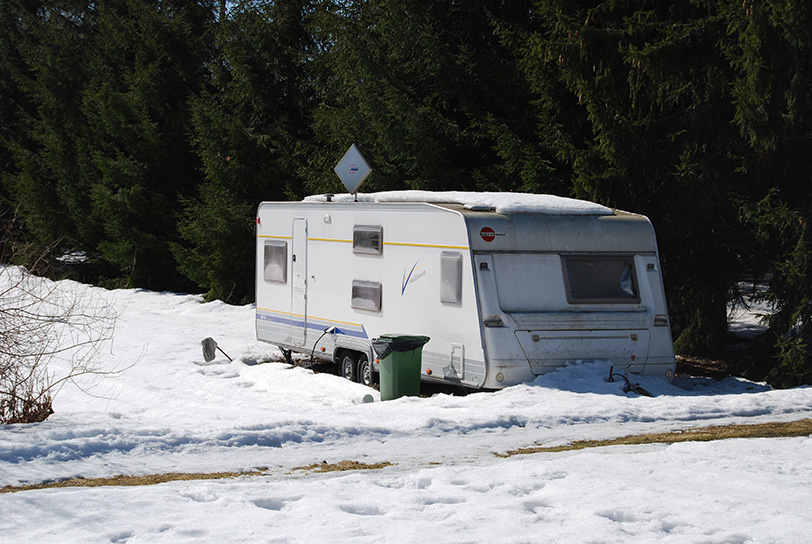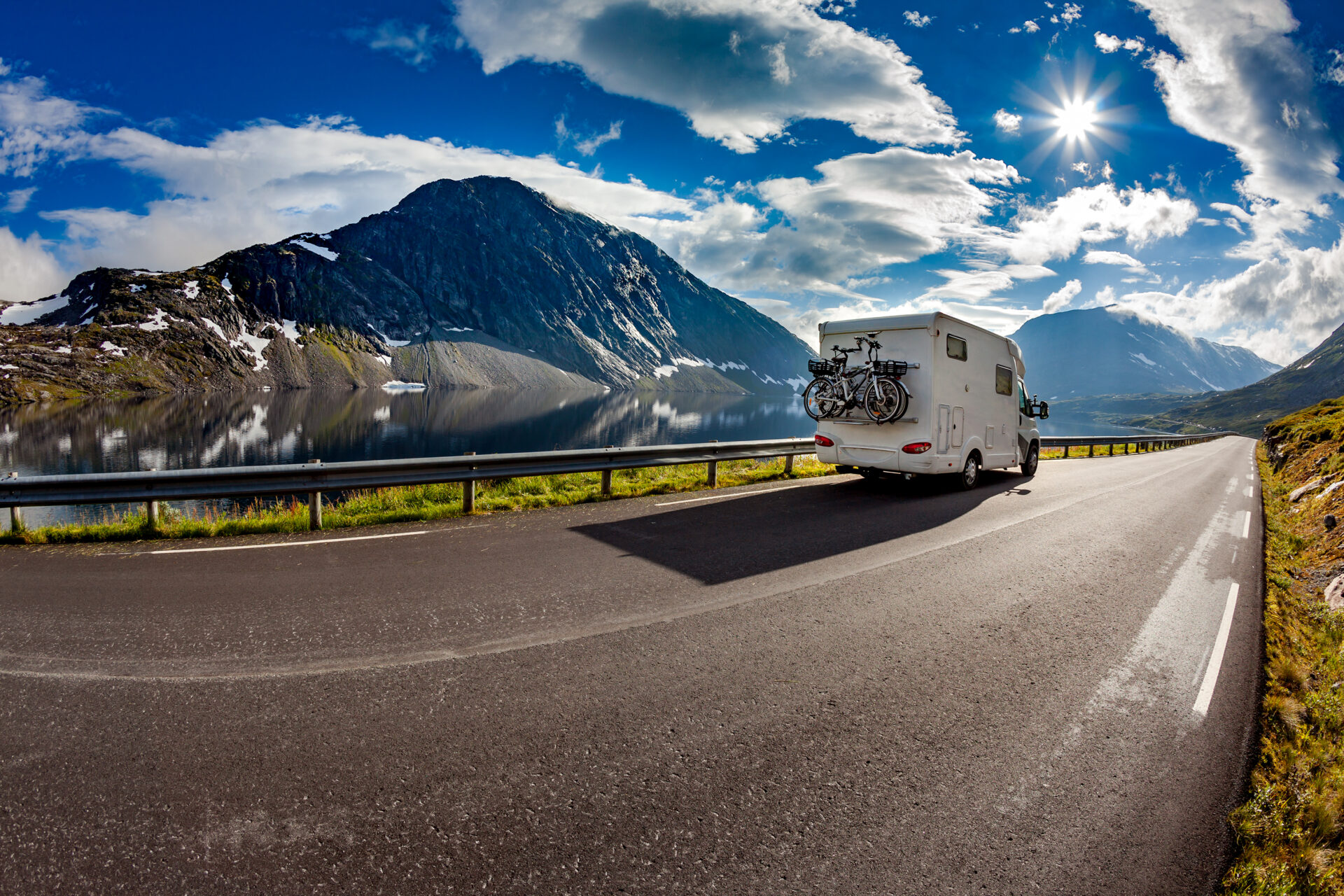In partnership with Olivia Charlotte

Toward the end of 2021, Yahoo Finance stated that the global self storage market was valued at approximately $51 billion. Many individuals have certainly taken advantage of convenient storage solutions. RV owners, in particular, recognize the need to prevent damage to their vehicles during winter. Freezing temperatures, rain, and snow contribute to the potential damage your RVs can endure throughout the season.
Whether you’re looking to rent parking storage or store your vehicle at home, there are some guidelines to help keep your RV in good condition until spring comes. Here’s how you can get started:
Drain the water system
During winter, the remaining water in your plumbing system can freeze and destroy fittings and lines. To try to prevent this from happening, drain your fresh water and waste tanks. Our post ‘How to Prepare a Classic Car for Vehicle Storage’ discussed that vehicles also require coolant for winter storage, so they don’t freeze while idle, classic car or not. This is why you should pump nontoxic RV antifreeze through your water system to push the liquid out of the pipes. Removing any water in your RV before storing it for the winter can help you avoid repair costs in the following seasons.
Get the right insurance
Wondering whether your RV is covered by your auto insurance? It is, but only up to liability coverage. This type of insurance only applies to injuries or damages you’ve caused— which is why you should consider purchasing comprehensive coverage for your RV as well. Sound Dollar’s insights on comprehensive insurance highlight how these packages cover issues like theft, vandalism, and natural disasters. During winter, RVs that aren’t properly stored can incur damages, especially if you live in hailstorm-prone areas. Comprehensive insurance can help alleviate steep repair costs if your RV’s damaged by unforeseen weather. However, look into your RV’s cash value first. If it’s quite low, you might have to pay higher premiums.
Protect the tires
If you’re storing your RV outside, protect your tires with covers. UV rays can degrade the rubber on your tires. Reach out to your RV dealership to find ones that fit perfectly and have great durability, so they can withstand winter. If you want to keep flat spots from appearing as well, consider chocking your tires to prevent accidental movement or jacking the weight from them. Ideally, it’s recommended that you inflate your tires according to the pressure indicated on the sidewalls. Inflating the tires ensures you can drive safely any time you want to take your RV out of storage this winter.
Cover up your RV
Another product that can gear your RV for outside storage is an RV cover. During winter, RVs remain susceptible to bird droppings, wind damage, and tree sap. Invest in a cover that can shield your RV from those elements. Forego plastic tarps, though, since plastic traps moisture and can cause exterior surface damage when it flails against the wind. Instead, look for tarps made from polyester or polypropylene. These are nonporous materials that prevent ice and melting snow from seeping into your RV. Add in an extra waterproof coating to avoid moisture buildup as well.
Mouse-proof the vehicle
Beyond what the name suggests, mouse-proofing includes warding off any animals, insects, or reptiles from moving into your RV during winter. First, you’ll need to check your RV’s exterior for cracks or holes where critters can crawl through. If you can fit a finger inside, chances are that mice or insects can as well. Consider filling these crevices with aluminum wool. Unlike steel wool, this material won’t rust. Otherwise, foam insulation material can be utilized for smaller cracks. If you’re storing your RV outside, remember to place insect and mouse traps along your tires or hitch blocks. You can also place them on the roof if your area is densely-populated with squirrels from overhead trees.
There are many components that come with storing an RV during winter. To ensure that all boxes are checked, you can avail of services at Prime Storage Group. Prime Storage offers affordable indoor and outdoor parking storage in select locations that’ll help keep your vehicles in top shape throughout winter.
Submitted by Olivia Charlotte for primestorage.com
Olivia Charlotte became a finance and business blogger after working in accounting for a decade. During her time in the corporate world, she has rediscovered her love for writing, which is why she’s now working towards becoming an author.
Prime Storage is proud to partner with Olivia Charlotte for this second installment of its Guest Blogger Series. The views, opinions, and endorsements expressed herein are those of the author and do not necessarily reflect the official policy or position of Prime Group Holdings.

